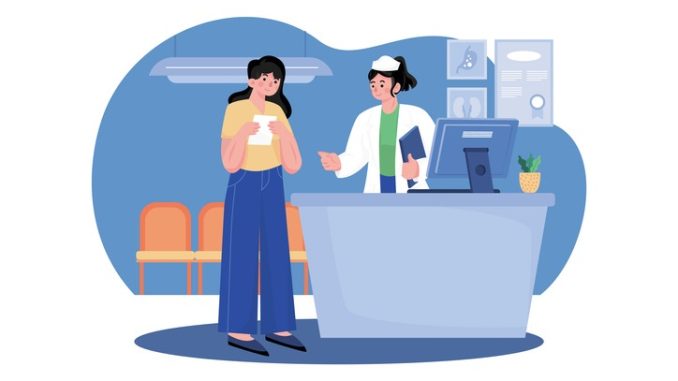
You may have heard of the Advanced Nurse Practitioner role, but do you know exactly what it entails? Find out below
CREDIT: This is an edited version of an article that originally appeared on Nurses.co.uk
As of yet, there is no officially registered role of the ‘Advanced Nurse Practitioner’ on the Nursing and Midwifery Council register (CQC).
Generally speaking, an Advanced Nurse Practitioner is a nurse who operates at a higher level of clinical practice.
There is now an agreed framework for advanced practitioners, created by Health Education England, which sets out a standard of practice. This article will mainly focus on the role covered by this framework, which is the Advanced Nurse Practitioner (ANP).
What Is an Advanced Nurse Practitioner?
As people live longer, with increasingly complex long-term health conditions, the scope of practice for nursing has adapted to the health needs of the UK population. In primary care, the role of the ANP was developed to work in tandem with GPs. In part, it was designed to relieve some of the pressure on GP practices by giving experienced nurses more autonomy to treat and diagnose their own patients.
ANPs can undertake a full history and physical examination of their patients. They can also independently prescribe medication. They need to have completed a Masters, and they use their wealth of clinical experience to diagnose and treat people, whilst working closely with the rest of the multidisciplinary team.
How Does It Differ From A Doctor?
At the end of the day, their job title is ‘nurse’, and they practice according to the NMC code. This means working within the limitations of their nursing scope of practice. The boundaries of their role should be agreed with their employer, to ensure there is clarity about what they can and can’t do.
What Does It Involve?
So, what can you expect if you decide to pursue this career?
Firstly, you will need to complete a comprehensive clinical assessment of patients, including history-taking and a full physical examination. You can independently request different diagnostic tests to help you form a differential diagnosis for your patient. And you will use your clinical knowledge to interpret clinical assessments and test results. ANPs develop personalised treatment plans for their patients and consider preventative health strategies alongside giving health education.
By keeping up to date with the latest evidence-based practice, and sometimes taking part in research, their contribution to healthcare is multi-faceted. The role is rigorous, and you will encounter complex situations which require a clear head and good clinical judgement.
What Qualifications Do You Need to Become An ANP?
Advanced Nurse Practitioners are mainly found in community settings, such as GP surgeries and hospital avoidance teams.
To become an ANP in a GP surgery, you need to meet the Advanced Clinical Practitioner Framework for Primary Care by Health Education England. This requires you to complete a Level 7 Masters programme in Advanced Assessment and Diagnosis, and an Independent Prescribers qualification.
The course allows you to prescribe any medication within your medical competency, including controlled drugs, as part of your patients’ management plan. You will need to demonstrate your competency for the role through a detailed portfolio of evidence, showing your ability to accurately assess, diagnose, treat, manage, and care for patients.
The role is rigorous, and you will encounter complex situations which require a clear head and good clinical judgement.
What Skills Do ANPs Need?
Advanced Nurse Practitioners need to use their clinical reasoning to assess people with a variety of symptoms who have not been previously seen by another healthcare professional.
The clinical picture is often more complex than the scenario above, so they must use critical thinking and analysis to form a clearer understanding of the underlying causes for their patient’s presentation. They are often the first point of contact and can encounter challenging situations which require problem-solving skills, and the ability to communicate clearly with different professionals.
To be an Advanced Nurse Practitioner, you will need to have gained a significant amount of clinical experience. Here’s a list of some of the skills and attributes you will need:
• Complex reasoning skills.
• Knowledge and expertise in your specified area of practice.
• The ability to be self-reflective, so that you can continually improve your practice.
• Excellent communication skills, and the ability to take the lead in your clinical setting.
• Active involvement in leadership, management, and education in your service area.



Be the first to comment